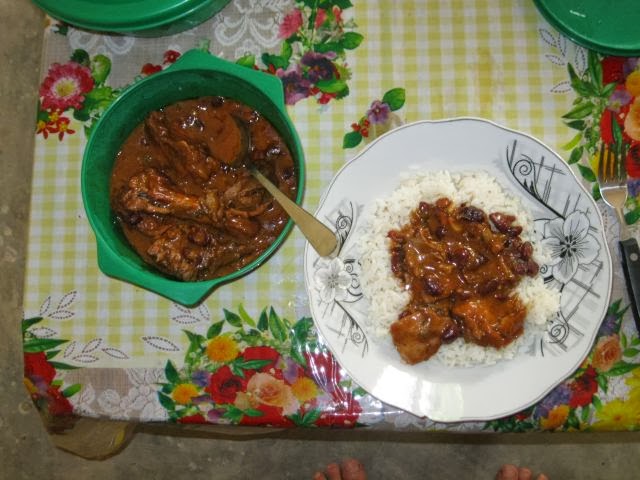March 12, 2014
We often forget the importance of turning on the faucet and getting safe drinking water, but for most of the world water is first hauled out of a deep well by bucket then put into another bucket, carried to a barrel where it is stored. Carrying the water is usually done by younger boys and girls. Here in Liberia it is transported on your head. I suggest you try to lift a full bucket of water over your head, let alone carrying it up a hill for some distance.
My needs are about two-three buckets of water a day which is brought by the young woman who cleans my house. On wash day it is even more. My greatest use of water is to flush the toilet, not unlike America. So I try to follow the adage from California water shortage times, "If its yellow, let it mellow. If its brown, flush it down". Even then, I let the brown stick around.
 |
| Liberian plumbing system |
My needs are about two-three buckets of water a day which is brought by the young woman who cleans my house. On wash day it is even more. My greatest use of water is to flush the toilet, not unlike America. So I try to follow the adage from California water shortage times, "If its yellow, let it mellow. If its brown, flush it down". Even then, I let the brown stick around.










